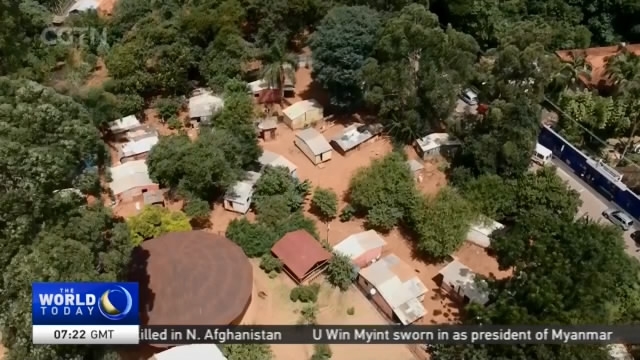
16:30, 30-Mar-2018
Endangered Languages: Indigenous Brazilian schoolchildren learn in their native language

It's well known that the endangerment of species has become an ever more pressing problem as the world's population grows. But languages also are coming under threat. There is a school in Brazil's Sao Paulo that is trying to preserve a native language, by using it in school. CGTN's Paulo Cabral has more from there.
This is a school for indigenous Mbya Guarani children in Brazil. Here, all activities for kids up to the age of six are in their original language and use teaching materials created by Guarani. Only after they start to attend a regular public school do they begin to have classes in Portuguese - Brazil's official language.
Their indigenous teacher says keeping their language alive is essential to maintaining their culture in the Tekoa Pyau village where about 700 Indians live just outside Brazil's biggest city, Sao Paulo - with about 12 million people speaking Portuguese.
TUPA XONDARO MBYA GUARANI TEACHER "We try to encourage our children to speak our language, to use the MbyaGuarani with their parents, for example. Things are very different nowadays: our people already adopted many costumes from outside, like the clothing. But we can't forget our language."
The school coordinator says their mission is to keep alive a language and a tradition that have been resisting change for centuries.
WILLIAM MACENA INDIGENOUS SCHOOL COORDINATOR "When the Portuguese arrived in Brazil 500 years ago, we spoke our language. It is part of our identity, and it has to be preserved. It can't disappear."
PAULO CABRAL SAO PAULO "According to the United Nations, there are 190 endangered languages in Brazil, all of them spoken by indigenous communities. The Endangered Languages Project says Mbya Guarani is considered vulnerable with an estimated six-thousand speakers. Efforts are being made for its preservation. But other languages with only a handful of speakers - are running an actual risk of extinction."
For many years, Brazil's official policy was to get all indigenous populations to speak only Portuguese.
BENEDITO PREZIA, LINGUIST & ANTHROPOLOGIST PONTIFICAL CATHOLIC UNIVERSITY OF SAO PAULO "Only in the late 1980's, under Brazil's new Constitution, were indigenous populations allowed to have schools with classes taught in these languages and to use them in books and radio stations, for example. Before that, Brazil followed a 1930's law that forbid the use of any language in the country apart from Portuguese."
Many indigenous people and NGOs have been working to preserve Brazil's remaining languages - so that important elements of traditional cultures are not lost forever. Paulo Cabral, CGTN, Sao Paulo.

SITEMAP
Copyright © 2018 CGTN. Beijing ICP prepared NO.16065310-3
Copyright © 2018 CGTN. Beijing ICP prepared NO.16065310-3